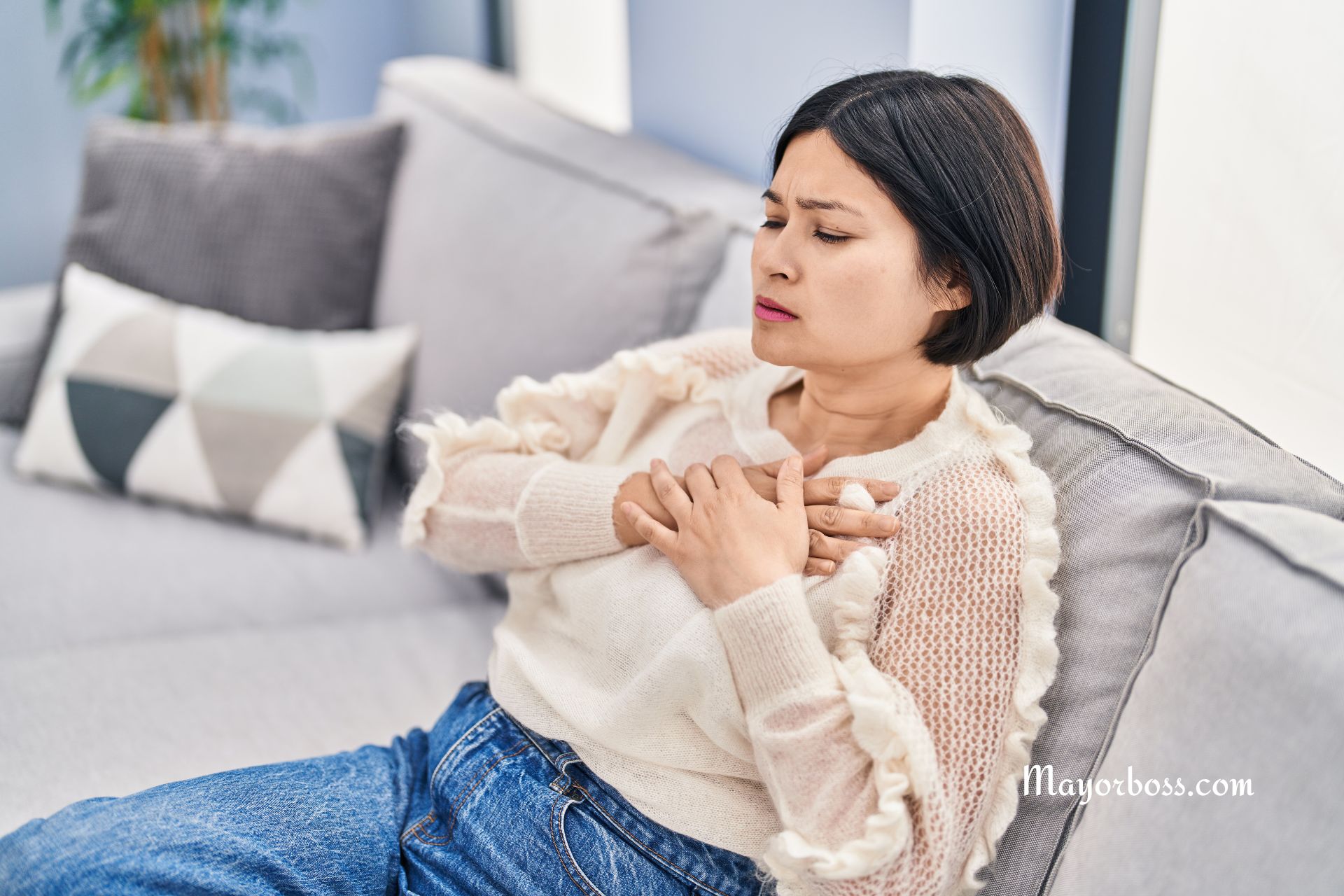Chest Pain in Women: Don’t Ignore These Warning Signs
Chest pain is often seen as a sign of a heart problem. While this is true, it’s important to know that heart disease can look different in women. In fact, many women do not experience the “classic” chest pain that people expect during a heart attack. Instead, their symptoms can be subtle or feel unrelated to the heart.

Why Chest Pain in Women Is Often Missed
For many years, research on heart disease mainly focused on men. As a result, signs and symptoms that were more common in women were overlooked. (1) Today, we know that women may describe their chest pain differently or experience other symptoms without chest discomfort at all.
Women are also more likely to delay seeking help. Some assume their symptoms are due to stress, indigestion, or fatigue. Others are simply too busy caring for others to take time for their own health. This delay can be dangerous.
What Heart-Related Chest Pain Feels Like in Women
Not all chest pain is the same. In women, heart-related chest pain can feel like:
- Pressure or tightness in the center of the chest (2)
- A burning sensation, similar to heartburn
- A feeling of fullness or squeezing
- Pain that spreads to the neck, jaw, back, shoulder, or arm
This discomfort may last more than a few minutes or come and go. It can happen during rest or physical activity. Some women describe it as a heaviness or discomfort rather than sharp pain.
Warning Signs That May Accompany Chest Pain
Chest pain is often just one of several symptoms. When the heart is in trouble, the body sends other warning signals. Women may also experience:
- Shortness of breath
- Nausea or vomiting
- Unusual fatigue, even after mild activity
- Lightheadedness or dizziness
- Cold sweats
- Anxiety or a sense of dread
These symptoms can happen with or without chest pain. That’s why it’s important to pay attention to your body and speak up if something feels off. (3)
Other Causes of Chest Pain in Women
Not all chest pain means a heart attack. Women can experience chest discomfort from many conditions. Some common causes include:
- Acid reflux or heartburn: A burning feeling in the chest after eating
- Anxiety or panic attacks: Sudden chest tightness with rapid heartbeat or fear
- Muscle strain: Soreness from overuse or injury
- Lung problems: Infections or clots can cause sharp pain and breathing trouble
- Gallbladder disease: Pain in the upper abdomen that may spread to the chest
Still, it’s impossible to know the cause without a medical exam. That’s why chest pain should never be ignored. (4)
When to Seek Medical Help
Call emergency services right away if you:
- Feel chest pain or pressure that lasts more than a few minutes
- Experience pain that spreads to your arm, neck, or jaw
- Have trouble breathing, feel faint, or break out in a cold sweat
- Notice any combination of these symptoms, especially if they feel new or unusual
Do not wait to see if the symptoms go away. Quick action increases your chances of recovery.
How Doctors Diagnose the Cause
To find the reason for chest pain, doctors may use several tools:
- Electrocardiogram (EKG): Measures the heart’s electrical activity
- Blood tests: Detect heart damage or signs of a heart attack
- Chest X-ray: Looks at the lungs and heart size
- Stress test: Checks how your heart responds to activity
- Imaging scans: Show blockages or heart structure problems
Treatment depends on the cause. If the chest pain is from a heart problem, medications or procedures may be needed to restore blood flow and protect the heart.
Steps to Protect Your Heart
Many heart problems can be prevented. Here are steps you can take to reduce your risk:
- Know your numbers: Keep blood pressure, cholesterol, and blood sugar in a healthy range
- Stay active: Aim for at least 30 minutes of movement most days
- Eat wisely: Choose fruits, vegetables, lean proteins, and whole grains
- Avoid smoking: Tobacco greatly increases heart disease risk
- Manage stress: Find healthy ways to relax, like walking or deep breathing
- Get regular check-ups: Screenings help catch problems early
Final Thoughts
Women’s heart health deserves attention. Chest pain should never be ignored, even if it seems minor. Trust your instincts. If you feel something is wrong with you, the best thing to do is contact your healthcare provider.
